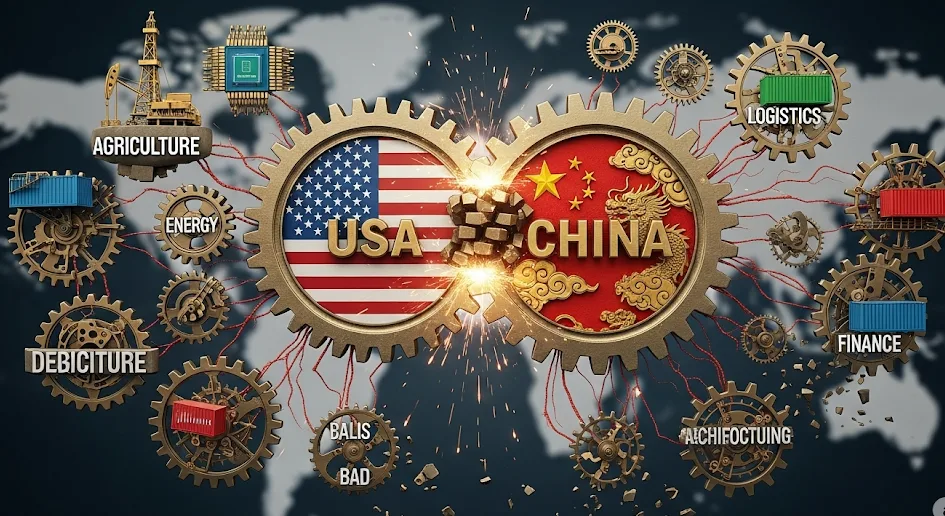
The U.S.-China trade war, marked by tariffs, export restrictions, and geopolitical tensions, has reshaped the global business landscape. Although centred on the world’s two largest economies, its effects ripple across international markets, influencing supply chains, investment flows, and corporate strategies.
For the UK, which maintains strong trade relationships with both countries, the consequences are felt in sectors ranging from manufacturing to technology, making it crucial for businesses and investors to understand these dynamics.
Disruption of Global Supply Chains
One of the most immediate impacts of the trade war is supply chain disruption. Companies that rely on manufacturing in China face higher export costs when selling to the U.S., while American restrictions on Chinese imports affect availability of goods and components worldwide.
This disruption has prompted many businesses to adopt strategies such as shifting production to other countries in Southeast Asia or nearshoring operations closer to home markets. Such changes, however, require significant investment and time, often impacting profitability in the short term.
Impact on UK Businesses
Two main areas stand out where UK companies are directly affected:
- Manufacturing and exports: British firms supplying components to U.S. or Chinese manufacturers may face reduced orders due to tariff-related cost increases.
- Technology and innovation: Restrictions on Chinese tech firms, particularly in areas such as 5G and semiconductors, can disrupt partnerships and delay projects.
These effects underline the interconnected nature of today’s global economy and the UK’s vulnerability to external trade conflicts.
Shifts in Global Investment Patterns
The trade war has altered global capital flows, as investors seek safer and more stable markets. Some businesses are diversifying their supplier bases to reduce dependence on either the U.S. or China, while others are investing in automation to offset rising costs.
For UK investors, these shifts present both risks and opportunities. Diversifying portfolios to include sectors less exposed to geopolitical tensions can help manage volatility, while identifying industries that benefit from supply chain realignment may lead to long-term gains.
Currency and Commodity Market Effects
Trade tensions also influence currency and commodity markets. Fluctuations in the Chinese yuan and U.S. dollar can affect exchange rates for the British pound, impacting import costs and export competitiveness. Commodity prices, particularly for metals and energy, often react sharply to changes in trade policy, influencing UK industries reliant on these resources.
Strategic Considerations for UK Companies
To navigate the uncertainties of the U.S.-China trade war, businesses in the UK may consider two primary approaches:
- Market diversification: Expanding into regions less impacted by the trade conflict to reduce reliance on U.S.-China trade flows.
- Supply chain resilience: Building flexibility into supply chains through multiple sourcing and stronger inventory management.
These strategies can help companies remain competitive despite external pressures.
Adapting to a Shifting Trade Landscape
The U.S.-China trade war has underscored the fragility of global business networks. For UK companies and investors, staying informed, diversifying markets, and building operational resilience are essential steps to mitigate risk and capture emerging opportunities in a rapidly changing economic environment.

 Impact of the Ukraine-Russia War on Global Markets Today
Impact of the Ukraine-Russia War on Global Markets Today  How the U.S. Debt Ceiling Crisis Impacts Investors
How the U.S. Debt Ceiling Crisis Impacts Investors  BRICS Expansion: Will It Transform Global Trade?
BRICS Expansion: Will It Transform Global Trade?